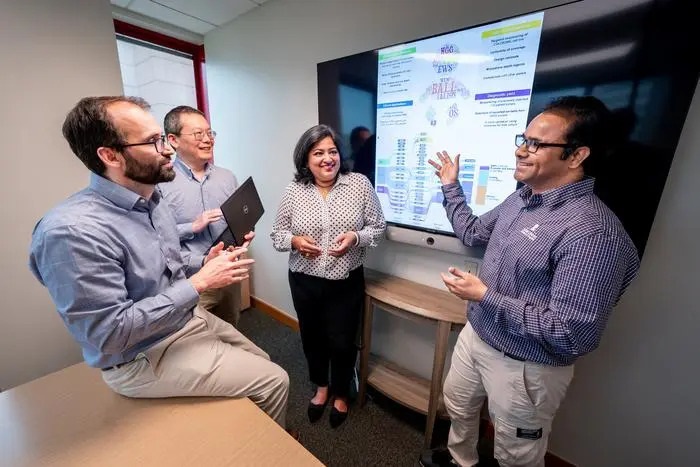New Liquid Biopsy Panel Targets Pediatric Cancers
Posted on 21 Nov 2024
Identifying mutations in a child's cancer using advanced sequencing technologies can significantly improve treatment outcomes. By understanding the specific cancer-causing mutations in each patient, physicians can tailor targeted therapies to address those mutations. However, current whole genome sequencing technology requires extensive physical and computational resources that many institutions do not have access to. To overcome this challenge, researchers have developed a more focused panel that targets a smaller set of genes known to play a role in childhood cancers, instead of sequencing the entire genome. This panel is capable of diagnosing over 90% of pediatric cancer patients by sequencing just 0.15% of the human genome, providing a cost-effective method for testing and classifying childhood cancers and helping guide treatment.
The SJPedPanel, developed by scientists at St. Jude Children’s Research Hospital (Memphis, TN, USA), is specifically designed for pediatric cancer samples, focusing on genes that are well-known to be involved in childhood cancers. Unlike other genetic panels, which are typically designed for adult cancers and then adapted for children, the SJPedPanel was developed with a pediatric focus from the start. The team also considered practical challenges in detecting certain mutations, selecting the most informative genes for inclusion. This approach led to significant improvements compared to existing cancer gene panels. The panel’s performance and validation were detailed in Clinical Cancer Research.

Not only does the SJPedPanel outperform adult-focused panels, but it also surpasses the gold-standard whole genome sequencing in some cases. Whole genome sequencing analyzes the entire genome, which can be challenging for detecting cancers with low cell counts due to the need for high-depth sampling. The panel’s success is partly due to its unique design and origin. St. Jude was involved in the Pediatric Cancer Genome Project, which sequenced hundreds of pediatric patients, providing a comprehensive understanding of the genomic landscape of childhood cancers. This initiative focused on pediatric cancers, which are genetically distinct from adult cancers.
The impact of the SJPedPanel could be significant for patients worldwide. Early and accurate diagnosis of childhood cancers is critical for guiding treatment and improving outcomes. Whole genome sequencing, however, requires costly infrastructure that many institutions cannot afford. By using this more affordable panel, healthcare facilities without the necessary resources can still identify and diagnose these cancers. While the panel will be commercially available, St. Jude plans to openly share its design and knowledge to help as many children as possible.
“We have performed clinical genomics for quite a few years and one of the challenges is diagnosing every tumor, especially those with a low percentage of cancer cells in the tested sample.” said co-corresponding author Xiaotu Ma, PhD, St. Jude Department of Computational Biology. “So, we created SJPedPanel as a summary to concentrate most of the genetic knowledge we have gained in the last decade into one smaller test that can be used clinically.”
Related Links:
St. Jude Children’s Research Hospital














